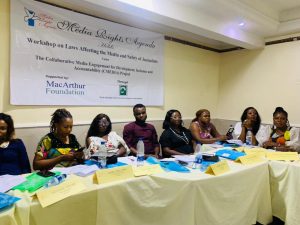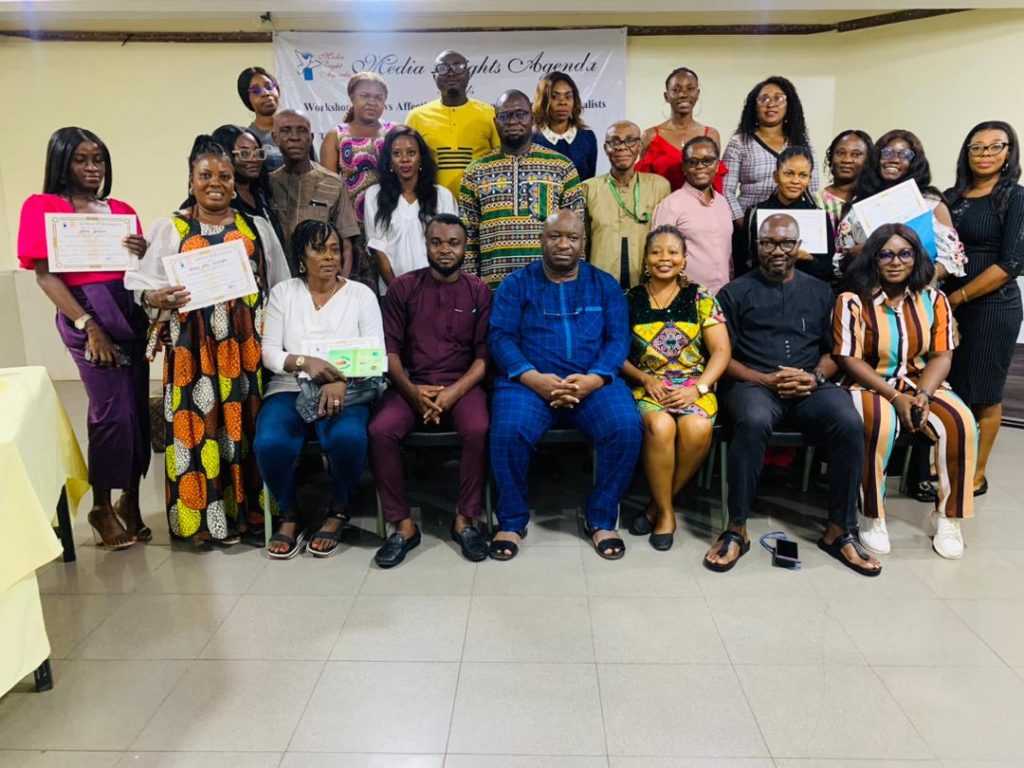Lawrence Nwimo, Awka
A two-day workshop on laws affecting the media and safety of journalists has ended with a call for a thorough review of existing laws governing journalism practice in Nigeria.
Organised by the Media Rights Agenda (MRA) in collaboration with the MacArthur Foundation through the Wole Soyinka Centre for Investigative Journalism (WSCIJ) under the Collaborative Media Engagement for Development, Inclusivity, and Accountability (CMEDIA) project, the workshop brought together journalists from various print, broadcast, and online platforms.
Participants emphasised the urgent need for reform to enhance press freedom and combat the escalating cases of intimidation and violence targeting media professionals in the nation.

A communique issued after the event and endorsed by both participants and trainers, condemned the ongoing assaults on journalists by security forces and influential politicians, many of whom actively obstruct journalists from carrying out their duties.
Acknowledging the pivotal role played by journalists and the media in informing the public, holding those in power accountable, and fortifying democratic governance, the communique denounced the increasing attacks on media practitioners.
“These attacks, whether physical, legal, political, technological, or economic in nature, violate media freedom and the rights of journalists,” it stated.
It noted that certain laws established during military regimes and others dating back to the colonial era persist under democratic rule, leading to the harassment, intimidation, and repression of journalists and the media.
It identified laws such as the Official Secrets Act of 1962, the Nigeria Press Council Act of 1992, the National Broadcasting Commission Act of 1992, and the Criminal Code Act as ones that have continued to impede press freedom in Nigeria.
Participants cited Cybercrimes (Prohibition, Prevention, etc.) Act of 2015 as a potent tool wielded by public officials and powerful individuals to suppress journalists and stifle media freedom.
They also highlighted the growing threats journalists face in the digital realm, necessitating heightened security measures to protect both journalists and their sources of information.
The workshop urged industry leaders to collaborate in advocating for the reform of laws used to silence and intimidate journalists, fostering a conducive environment for media practice in Nigeria.
It emphasised the importance of media owners supporting journalists in the face of threats and harassment. It also advised them to provide digital security policies to protect journalists and their data from internal and external threats.
It encouraged journalists to familiarise themselves with media laws, ethical standards, and digital security protocols to safeguard themselves and their sources, even enabling them to carry out their work confidently and professionally.
Ikengaonline reports that the workshop which featured 30 participants further called for enhanced cooperation and solidarity within the media sector to address common challenges and ensure a safer environment for journalism practice in Nigeria.

